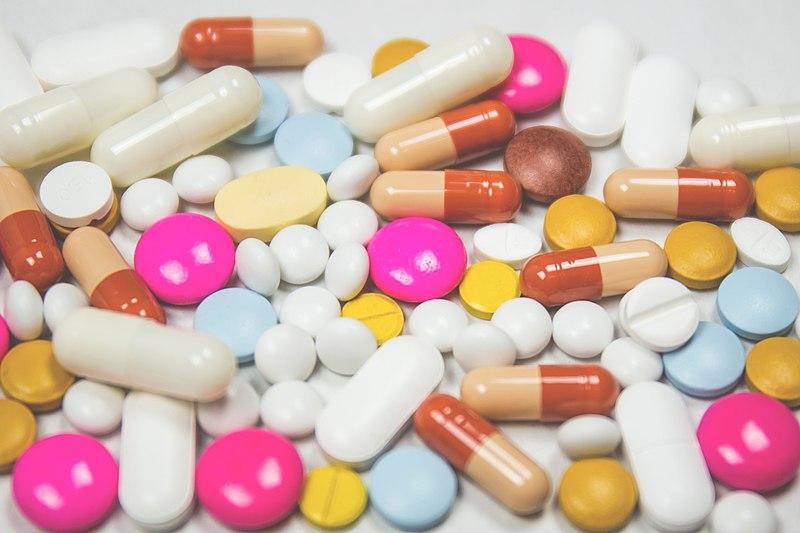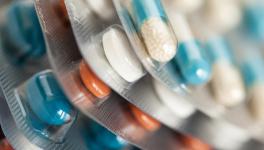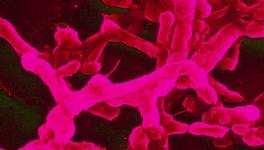Antidepressants Help Bacteria to Acquire Antibiotic Resistance

Representational Image. Image Courtesy: Wikimedia Commons
New Delhi: Antibiotic resistance of bacteria is a serious health concern across the world. Antibiotics are primarily meant for killing bacteria, but when bacteria acquire resistance against it then application of it becomes useless. Bacteria acquire antibiotic resistance through their genetic mutation (changes). The primary reason for antibiotic resistance is the overuse of antibiotics, as suggested by researchers.
However, lately, researchers have come across another possible agent that can trigger antibiotic resistance amongst bacteria and this is antidepressant drugs. These antidepressants are prescribed for the treatment of clinical depression as well as for the treatment of other disorders like Post Traumatic Stress Disorders (PTSD) or Obsessive Compulsive Disorder(OCD). It sounds quite surprising that drugs used in completely different diseases can give rise to antibiotic resistance.
By studying bacteria grown in the laboratory, a team of researchers in Australia has recently reported how antidepressants can trigger antibiotic resistance. This research has been published in the Proceeding of the National Academy of Sciences(PNAS) journal on January 23. “Even after a few days exposure, bacteria develop drug resistance, not only against one but multiple antibiotics,” remarked Jianhua Guo, the corresponding author of the research who works at the Center for Water and Environmental Biotechnology, University of Queensland, Brisbane, Australia.
Antibiotic resistance is a significant threat to public health globally. In the year 2019 alone, estimation says that over 1.2 million people died as a direct result of antibiotic resistance worldwide. This number is likely to increase in future.
Back in 2014, Guo and his colleagues became interested in looking at the possibility of antibiotic resistance by non-antibiotic drugs. This, as Nature Briefing reports, had the root in findings from Guo’s lab where they found more antibiotic genes in domestic wastewater in comparison to wastewater of hospitals. Remember, hospitals have a much higher use of antibiotics.
Guo’s team along with others also observed that antidepressants killed or obstructed the growth of certain bacteria. In 2018, in another research paper, Guo and colleagues reported that E coli, which is one of the most common bacteria, became resistant to multiple antibiotics after exposure to the antidepressant drug fluoxetine, with the common name of Prozac that it is sold.
The recent PNAS paper examined antibiotic resistance due to antidepressant drugs taking 13 antibiotics from six classes along with five antidepressants other than Prozac and their effects on E coli.
The researchers found that when the bacteria are grown in well-oxygenated conditions, the antidepressants led to the production of Reactive Oxygen Species (ROS) in the cells. ROS is a toxic substance which activates the defence mechanism of bacteria. Importantly, this activated a bacterial mechanism known as the efflux pump system. This efflux system is one of the common systems many bacteria use to eliminate various molecules including antibiotics.
Along with this, the researchers found that antidepressants also increased the mutation rate in the bacteria, eventually, the selection of resistance genes occurred. However, amongst the bacteria grown in anaerobic conditions (without oxygen), the ROS production was much less and also the antibiotic resistance was lower. They found that sertraline, one type of antidepressant, promoted the transfer of genes between bacterial cells. This transfer can make resistance travel from one kind of bacteria to another, which indicates that the resistance can move from a harmless bacterium to a pathogenic one, which is indeed tensive.
There are other such studies being conducted at different laboratories across the world. However, Guo cautions people not to stop taking antidepressants based on the research. They urge that fighting depression comes first and then the bacteria. Guo also cautions pharmaceutical companies. “Researchers and pharmaceutical companies need to quantify the contribution of non-antibiotic pharmaceuticals to antibiotic resistance. Non-antibiotic pharmaceuticals are a big concern that we shouldn’t overlook,” he said in a statement.
Get the latest reports & analysis with people's perspective on Protests, movements & deep analytical videos, discussions of the current affairs in your Telegram app. Subscribe to NewsClick's Telegram channel & get Real-Time updates on stories, as they get published on our website.


















